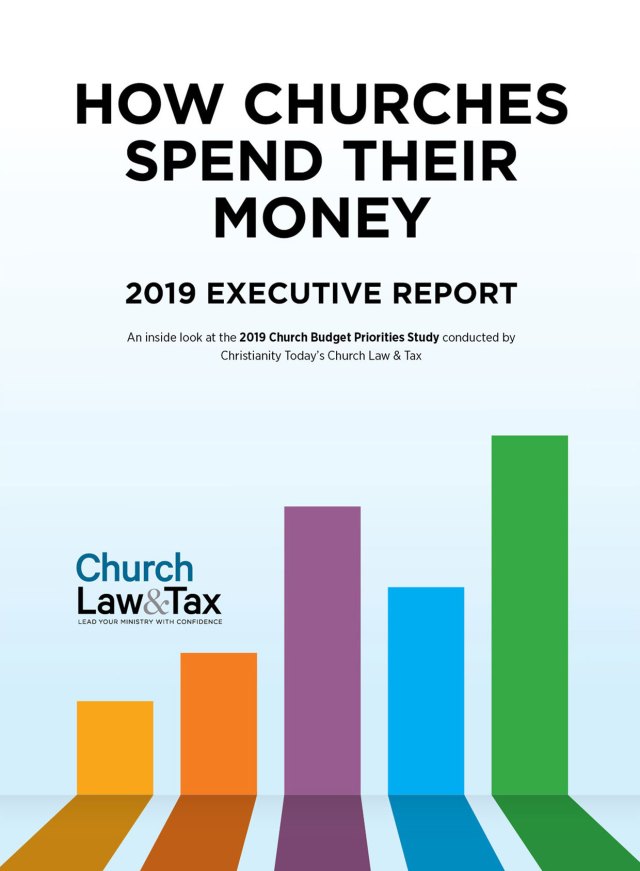The Tax Court recently ruled that personal transfers from church members to their pastor constituted taxable income even though not receipted by the church.
A church’s founding pastor received no salary for 13 years. He was financially sustained in three ways:
- Members made donations that exceeded $200,000 annually. The church used blue envelopes for donations by members to the pastor. The pastor first told his congregation about the blue envelopes at the church’s annual business meeting. He explained that if members were so inclined they could donate to him in blue envelopes but they wouldn’t get a tax deduction. All the blue envelopes were handed over to the pastor unopened.
- The pastor also received a housing allowance of $6,500 per month.
- The pastor received fees from speaking engagements in other churches of up to $40,000 annually.
The pastor did not report any of the “blue envelope” donations from members of his church as taxable income on his Form 1040. The IRS audited the pastor’s tax returns, and claimed that these offerings were taxable income rather than nontaxable gifts. The pastor appealed to the Tax Court.
The Court began its opinion by noting that the tax code defines taxable income to include compensation for services. The Court conceded that the tax code exempts gifts from taxation, but noted that this exclusion does not apply to “any amount transferred by or for an employer to, or for the benefit of, an employee.” IRC 102(c). But the IRS did not press this point, and the Court concluded that “it’s unclear whether it could apply” since “we can’t say that the individual church members are [the pastor’s] employers.”
Donations to clergy
The Court noted that prior cases involving donations to clergy demonstrate that the following four factors are important in distinguishing between taxable payments and gifts:
Whether the donations are objectively provided in exchange for services
The court concluded that this factor supported taxation of the blue envelope offerings: “We cannot find objective signs that the blue-envelope donations were unrelated to future services. This case isn’t anything like those with retiring ministers, for example, where the congregations quite clearly understood that the additional retirement payments had nothing to do with services” (referencing the Mutch and Schall cases described further below). . . .” The pastor founded the church and was a devoted pastor. “Although he didn’t explicitly agree to provide future services only in exchange for blue-envelope donations, we don’t think that that proof of his subjective intent is required either. . . . We do therefore find that by this measure the contributions made in blue envelopes were not gifts as that term has developed in tax law, but are rather—from an objective perspective—meant to keep [the pastor] preaching where he is.”
Whether the minister (or other church authorities) requested the personal donations
The Court stressed that the pastor “introduced the blue envelopes at the church’s annual business meeting, where he explained that members could use them to make personal donations to him but that there would be no tax deduction if they did. It seems that that was the last time anyone from the church talked about the blue envelopes with the congregation.”
Whether the donations were part of a “routinized, highly structured program,” and given by individual church members or the congregation as a whole
“There are things about the donations here that show a routinized, highly structured program. The blue-envelope system in and of itself is evidence of a structured program: The envelopes say ‘pastoral gift’ on them, and they list all the necessary information about [the church] and how to make checks out to [the pastor] personally. Donations made in these envelopes are objectively different from the occasional twenty dollar gift spontaneously given by a church member after an inspiring sermon. . . . We also can’t ignore the sheer size of blue-envelope donations in 2008 and 2009, or the fact that they are very similar in amount in both years—within 10% of each other. We find it more likely than not that this means there was a regularity of the payments from member to member and year to year, which indicates that they were the result of a highly organized program to transfer cash from church members to the pastor. These are regular, sizable payments made by people that [the pastor] provides a service for, and they are therefore hard to distinguish from compensation.”
Ratio of church salary to personal donations
The Court noted that for the two years examined by the IRS (2008 and 2009) the blue envelope personal offerings far exceeded any other compensation the pastor received from the church, and “this makes the blue envelope donations seem more like income than gifts.” This “gives the distinct impression that the transferors knew that, without the donations, they wouldn’t be able to keep their popular and successful minister. . . . The pastor’s purported gifts are around double the total of his deemed salary and parsonage allowance for both of the years at issue.”
The Court concluded: “As another former seminarian is widely thought to have said: ‘Quantity has a quality all its own.’ When comparatively so much money flows to a person from people for whom he provides services (even intangible ones), and to whom he expects to provide services in the future, we find it to be income and not gifts.”
Penalties
Section 6662 of the tax code imposes a 20-percent penalty when there is “any substantial understatement of income tax,” which exists if the tax understatement exceeds the greater of $5,000 or “10 percent of the tax required to be shown on the return.” But a taxpayer avoids this penalty by showing that he or she acted with reasonable cause and in good faith. The Court concluded that the exception did not apply, and it upheld the assessment of penalties against the pastor:
The pastor argues that he had reasonable cause because his facts are unique and the cases in this area are anything but clear. We wouldn’t normally penalize taxpayers for making an honest mistake of law in an area that lacks clear guidance. But the pastor has two problems: He cites no precedent favorable to him arising from gifts to a clergyman who wasn’t retired or about to be, and the record shows that the pastor filed his returns only after the IRS contacted him. The record shows that the pastor—who didn’t say he has any tax training—prepared the returns himself. We aren’t convinced that he or his wife knew about any of the case law in this area when they filed their late returns. And there is no evidence in the record about their efforts to compute their proper tax liability when they filed their returns; that poses a problem because the regulations say that is generally the most important factor for reasonable cause.
What this means for churches
This case is important for three reasons.
First, it is one of the few courts to address the tax status of “gifts” made to pastors. There is a lot of confusion regarding such transfers, with many churches assuming they are nontaxable gifts rather than taxable compensation. This court squarely laid down the following principle: “When comparatively so much money flows to a person from people for whom he provides services . . . and to whom he expects to provide services in the future, we find it to be income and not gifts.”
Second, the church affirmed the following federal appeals court finding that, under the circumstances, retirement gifts to clergy were not taxable:
Schall v. Commissioner, 174 F.2d 893 (5 th Cir. 1949). A federal appeals court ruled that a church’s retirement gift to its pastor represented a tax-free gift rather than taxable compensation. The pastor was forced to retire on the advice of his physician as a result of a long illness. He made no request of the congregation that any amount be paid to him after his resignation, and he had no knowledge that the church would agree to do so. He did not agree to render any services in exchange for the gift and in fact did not do so. The court concluded:
We are of the opinion the Tax Court clearly erred in holding that the payments to [the pastor] were taxable income. Where, as here, all the facts and circumstances surrounding the adoption of the [gift] clearly prove an intent to make a gift, the mere use of the terms “salary” and “honorarium” do not convert the gift into a payment for services. Moreover, “a gift is none the less a gift because inspired by gratitude for past faithful service of the recipient. . . .” Manifestly, these payments to [the pastor] were non-taxable gifts, within the orbit of the rule defining same, as enunciated by this court in [another case]: “That only is a gift which is purely such, not intended as a return of value or made because of any intent to repay another what is his due, but bestowed only because of personal affection or regard or pity, or from general motives of philanthropy or charity.”
Mutch v. Commissioner, 209 F.2d 390 (3 rd Cir. 1954). A federal appeals court ruled that monthly retirement gifts made by a church to its retired pastor were tax-free gifts rather than taxable compensation. The court noted that the church’s action in providing for the monthly honoraria “was motivated solely and sincerely by the congregation’s love and affection for [the pastor].” The court described the church’s action as a “free gift of a friendly, well-to-do group who as long as they were able and because they were, wished their old minister to live in a manner comparable to that which he had enjoyed while actively associated with them.” The court also observed: “[The pastor] had been adequately compensated as far as money could for his services in the past. He was not being tied into any promise of services in the future. The installment gift, while it could be stopped or changed at any time by the trustees, had no conditions attached to its acceptance. The court concluded that no other ruling ‘justifies the taxing of this bona fide gift given [the pastor] with love and affection by his old congregation.’”
Third, the Court dismissed the application and relevance of section 102(c) of the tax code, which specifies that the definition of the term gift shall not include “any amount transferred by or for an employer to, or for the benefit of, an employee.” The Court concluded that relying on section 102(c) to resolve this case was problematic since “we can’t say that the individual church members are [the pastor’s] employers.” Felton v. Commissioner, T.C. Memo. 2018-168 (2018).





